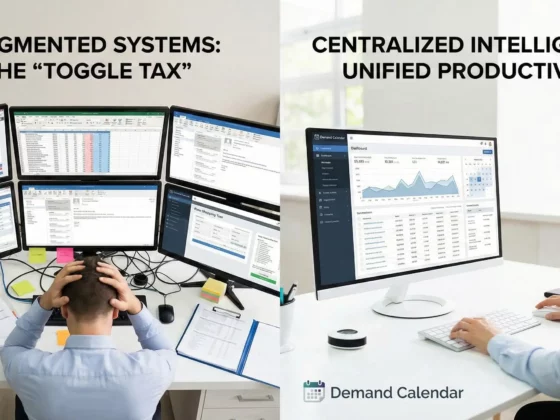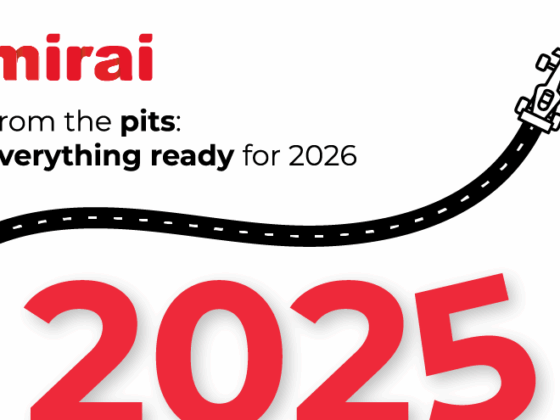A few thoughts…..
Online Booking Tools (OBTs) have been the backbone of corporate travel for decades. They’ve helped employees book flights, hotels and rental cars while ensuring compliance with company policies. But the truth is, the world has moved on and OBTs haven’t kept up. Now, the rise of new technologies, particularly AI-powered solutions, could signal the end of OBTs as we know them. So, what’s driving this shift, and what does it mean for the industry? Let’s take a closer look.
Why OBTs Are on Life Support?
The problem with OBTs is that they’re built for a different era.
Steve Singh
, Executive Chairman of
Spotnana
calls the current corporate travel tech stack “antiquated” and “fragmented.” And he’s damn right too. These systems were designed for a time when travel bookings were simpler and the expectations of both users and companies were far lower. Today, OBTs are rigid, disconnected, and often frustrating to use. (You can explore Singh’s full perspective in this
Phocuswright
interview https://www.phocuswire.com/executive-interview-pc-24-steve-singh-madrona-spotnana).
Think about it: we live in a world where technology has made almost every other aspect of our lives seamless. Food delivery, ecommerce and even fintech are just a few taps away. Yet booking business travel often feels like navigating an outdated system that refuses to meet you halfway. The tools are clunky, policies are hard to enforce and the end result is often dissatisfaction for both employees and travel managers.
I vividly remember prior pandemic, I probed with various key OBT players how OBTs could integrate AI, voice, VR etc – Blank stares. Now we are there.
AI Agents Changing the Game
Enter AI-powered solutions like
Google
’s Project Mariner. This tool, powered by Google’s Gemini 2.0 AI model, represents a fundamental shift in how #travelplanning could work. Mariner isn’t just another interface. It’s a digital assistant capable of performing complex tasks autonomously. Need a flight to a conference, a hotel near the venue, and a car to get you there? Mariner can handle it all, without you having to click through a maze of menus. (Check out more about Mariner in this
TechCrunch
article https://techcrunch.com/2024/12/11/google-unveils-project-mariner-ai-agents-to-use-the-web-for-you/ )
The potential of tools like Mariner goes beyond convenience. These AI systems integrate with existing platforms, learn user preferences, and adapt in real time. Unlike OBTs, they aren’t limited by outdated architecture or rigid workflows. They’re dynamic, flexible and built for the modern era.
Recommended by LinkedIn
What This Means for Travel Management Companies?
Travel Management Companies (TMCs) have long relied on OBTs as a cornerstone of their service offerings. But with AI agents becoming more capable, TMCs need to rethink their value proposition. If an AI assistant can book travel, manage compliance and even troubleshoot issues in real time, what role does a TMC play? The answer lies in offering strategic, personalized service that goes beyond the booking process. TMCs can focus on areas where human expertise still matters: Negotiating vendor relationships, analysing travel data, providing support for complex travel scenarios, travel risk management and so on. The TMCs that thrive will be the ones that embrace AI as a tool to enhance their offerings.
What this means For Users and Corporate Buyers?
For the end users, the employees who travel for work, this shift is likely to be a win. AI-powered tools promise to make booking faster, easier and more intuitive. They can also help travellers stay within company policies without feeling constrained. However, the transition may come with challenges, such as ensuring data privacy and navigating the learning curve of adopting new technologies.
Corporate buyers and travel managers will also need to adapt. While AI agents can simplify travel planning, they still need oversight to ensure compliance with budgets, policies and duty of care obligations. Companies will need to strike a balance between embracing these new tools and maintaining control over their travel programs.
When Will OBTs Potentially Sunset?
If OBTs don’t evolve, their days are numbered. There seems already some consensus that suggests they have a lifespan of five to seven years from now, in their current form. The pace of innovation in AI, coupled with increasing demand for seamless user experiences, means companies will either need to overhaul OBTs entirely or let them fade into obscurity.
The key takeaway is this: the future of corporate travel isn’t just about technology. It’s about reimagining how travel works, making it smarter, more efficient, and ultimately more human-centered. AI agents like Project Mariner offer a glimpse of what’s possible, but they’re not just the future, they’re already here. For those in the corporate travel space, the message is clear: Evolve or risk becoming obsolete.
#CorporateTravel #TravelTech #AIinTravel #FutureOfWork #BusinessTravel #TravelManagement #DigitalTransformation #Innovation #SmartTravel #ArtificialIntelligence #TRM #TravelRiskManagement #TravelBuyer #TravelProcurement #NDC






